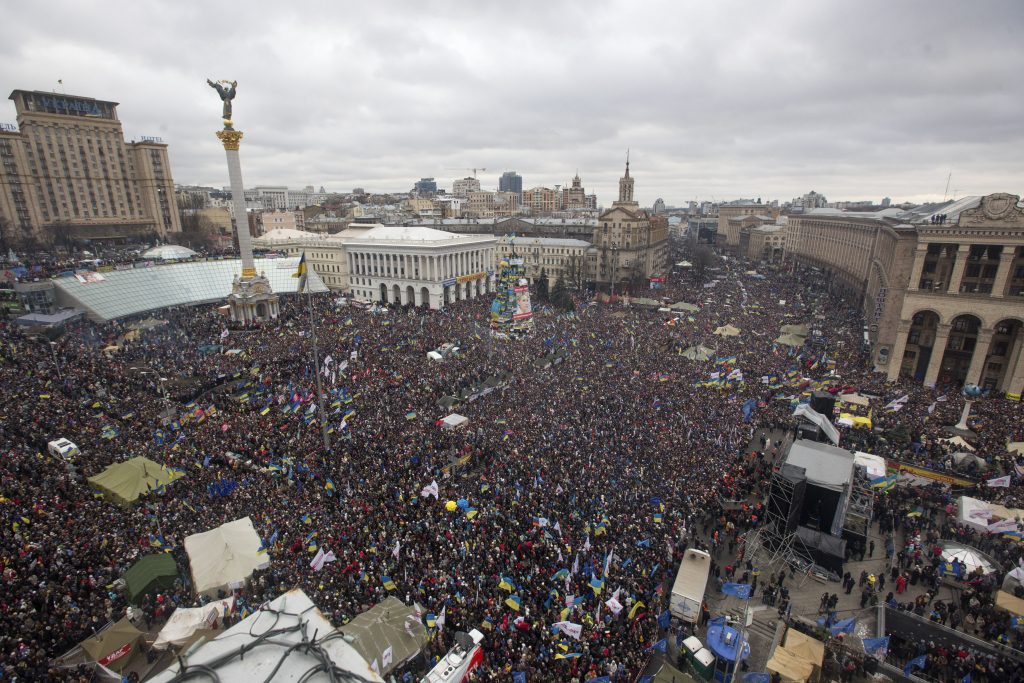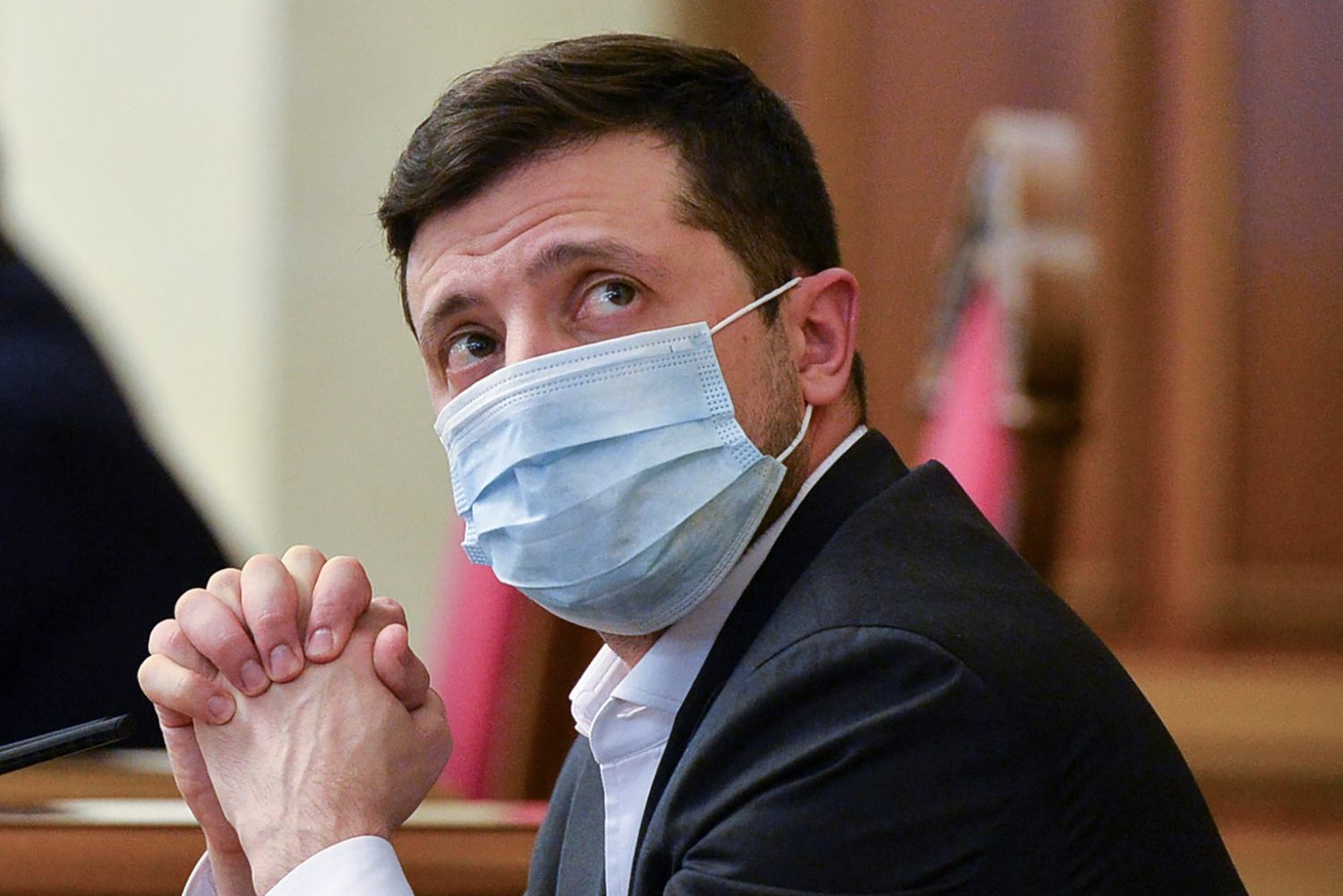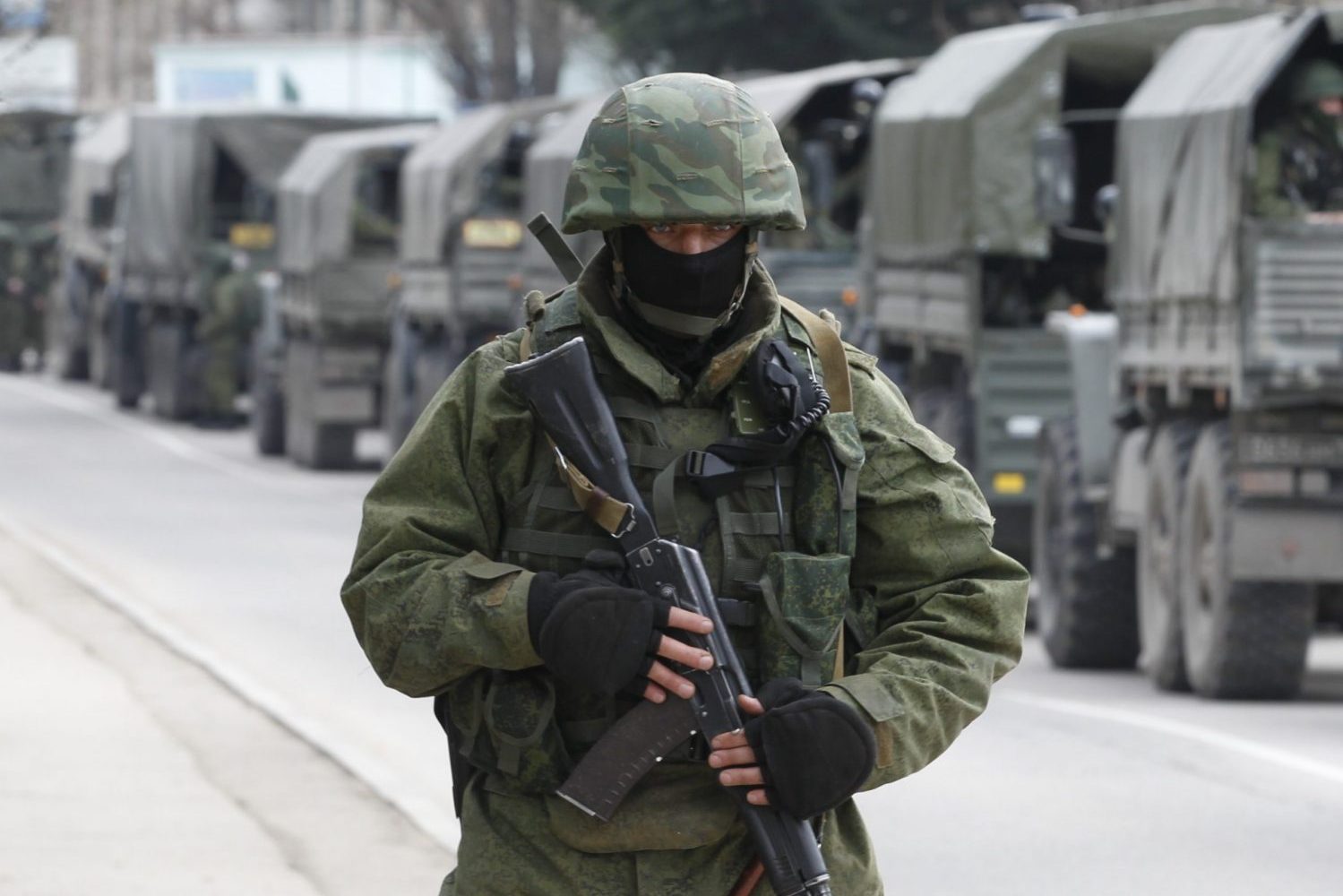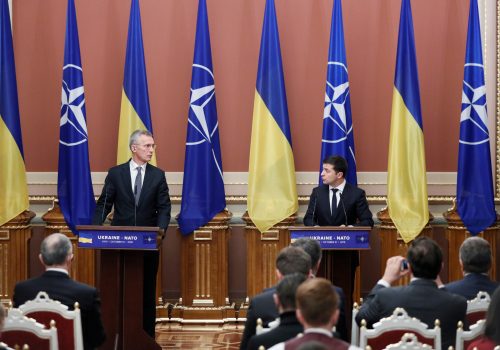For the first time since the last days of the Yanukovych era, Ukraine has taken a step towards tyranny. On April 10, masked operatives from Ukraine’s State Bureau of Investigations swooped on the home of anti-corruption activist, civic leader, and former parliamentarian Tetyana Chornovol. She is being investigated by President Zelenskyy’s appointees on charges of murder and impeding the activities of former Ukrainian president Viktor Yanukoych’s Party of Regions during the country’s 2013-14 Maidan Revolution.
Tetyana Chornovol is a colorful and controversial personality who is renowned for her personal courage. In August 2012, she scaled the fence of President Yanukovych’s palatial country estate (estimated to have cost half a billion dollars), revealing in clear terms the scale of his corruption. As the Maidan protest movement escalated in December 2013, she was abducted and beaten to a pulp in an attack that shocked the nation. Her husband, another Maidan activist, was a volunteer fighter killed in August 2014 while defending Ukraine from Russian aggression.
Clearly Chornovol is no ordinary citizen. She is a living symbol of the Maidan protests and the war against Moscow’s invasion and occupation of eastern Ukraine. In this sense, the case against her amounts to an attack on the prevailing view of recent Ukrainian history. It is an attack on the idea of the Maidan Revolution as a legitimate civic movement in defense of Ukraine’s fledgling democracy, and on the actions taken by largely nonviolent protesters in response to deadly attacks by increasingly illegitimate state authorities. The campaign against her now promises to make Chornovol a national cause célèbre.
Stay updated
As the world watches the Russian invasion of Ukraine unfold, UkraineAlert delivers the best Atlantic Council expert insight and analysis on Ukraine twice a week directly to your inbox.
Outspoken ex-MP Chornovol is reportedly under suspicion for a series of alleged crimes. So far, she has been officially notified that she is being investigated for murder relating to a fire at the Party of Regions national headquarters in Kyiv at the height of the protests in February 2014. Chornovol does not deny that she led protesters to the Party’s headquarters and participated in setting fire to the building. However, investigators who previously examined the case determined that everyone in the building had ample time to exit unimpeded. One Party of Regions employee, IT specialist Volodymyr Zakharov, who likely was instructed by his superiors to collect CCTV camera footage of the attack, died from smoke inhalation. This was clearly a tragic event, but one which investigators have already determined was not the direct result of the politically-motivated arson attack.
Significantly, the attack on the Party of Regions headquarters occurred on a day of rapidly rising tension in central Kyiv amid violent attacks on protesters by the security services and thugs allied with the Party of Regions. Nevertheless, on the same day, Chornovol says she addressed protesters on Maidan with a message that physical violence was not the answer to the state’s physical violence.
The reopening of a case already investigated and closed for lack of merit by the Prosecutor General’s office smacks of political motives. Incredibly and alarmingly, the case has been placed in the hands of Judge Serhiy Vovk of the Pechersk district court in Kyiv, who is regarded as closely associated with the Yanukovych clan. In 2012, Vovk sentenced former Ukrainian interior minister Yuri Lutsenko to four years in prison in what was regarded by international human rights monitors as an act of political repression. Chornovol’s lawyers have challenged this appointment and asked for an unprejudiced judge to hear the case.
In addition to questions over judicial bias, the leadership of the State Bureau of Investigations is itself also vulnerable to accusations of bias. Prior to his appointment as the current State Bureau of Investigations Deputy Director, Oleksandr Babikov served as a lawyer for Yanukovych and other members of the former Ukrainian leader’s inner circle. Crucially, Babikov was nominated by the Zelenskyy team, so the prosecution of Chornovol is proceeding under the authority of the current Ukrainian President’s own appointees. President Zelenskyy cannot therefore wash his hands of the case and must instead act to prevent an act of politically motivated persecution.
Such intervention would not be unprecedented. In recent weeks, Zelenskyy has intervened broadly to change the composition of investigative and prosecution agencies, including the surprise removal of the well-regarded prosecutor general and his top management team. Removing Babikov as Deputy Director the State Bureau of Investigations and launching an investigation into the prosecutors responsible for the lamentable decision to pursue Chornovol would now seem to be Zelenskyy’s only responsible course of action.
Eurasia Center events

If he fails to act, the case could prove deeply damaging to Zelenskyy’s international reputation. His standing among Ukraine’s partners has already suffered following a series of wrong-headed steps. These have included needless concessions to Russia in the Minsk negotiations, the surprise jettisoning of a government that included many well-regarded reformers, and the opening of numerous frivolous criminal cases against former Ukrainian president Petro Poroshenko. More importantly, the prosecution of Tetyana Chornovol also risks alienating and enraging virtually all of Ukraine’s independent civil society, including the entirety of the Maidan movement along with the hundreds of thousands of volunteers and war veterans who have helped defend the country against Russia’s invasion.
These constituencies represent the most active and patriotic segment of Ukrainian society. Their cooperation is essential for any Ukrainian leader who wishes to govern effectively, especially a president like Zelenskyy who came to power promising to unify the country. As Ukraine copes with escalating health, economic, and social crises, the support of this segment of Ukrainian society will be indispensable to the country’s stability and to the popularity of its elected leaders.
President Zelenskyy risks deep political trouble if he chooses to let the dubious case against Tetyana Chornovol proceed. He came to power as a fresh face in Ukrainian politics, but this prosecution could cement his reputation as a proponent of counter-revolutionary revisionism and revenge against the Maidan.
Adrian Karatnycky is Senior Fellow at the Atlantic Council.
Further reading
The views expressed in UkraineAlert are solely those of the authors and do not necessarily reflect the views of the Atlantic Council, its staff, or its supporters.

The Eurasia Center’s mission is to enhance transatlantic cooperation in promoting stability, democratic values and prosperity in Eurasia, from Eastern Europe and Turkey in the West to the Caucasus, Russia and Central Asia in the East.
Follow us on social media
and support our work
Image: Hundreds of thousands of Ukrainians gather on Kyiv's Independence Square ("Maidan Nezalezhnosti') in December 2013 during the early stages of the country's 2013-14 Maidan Revolution. REUTERS/Inna Sokolovska




